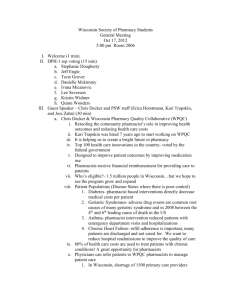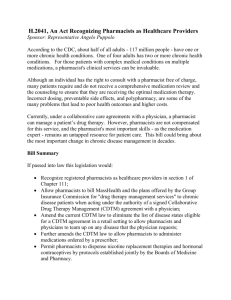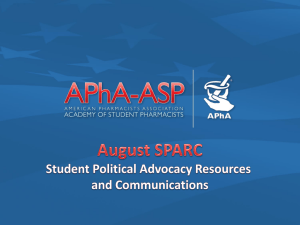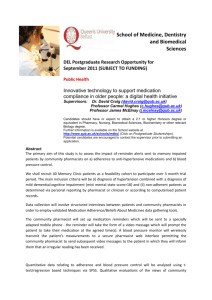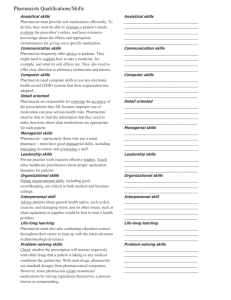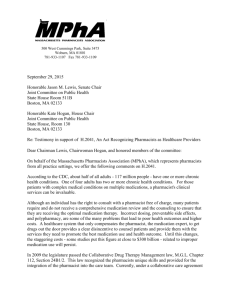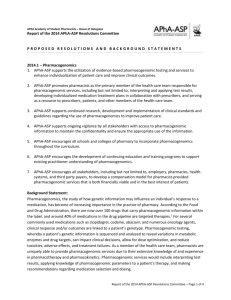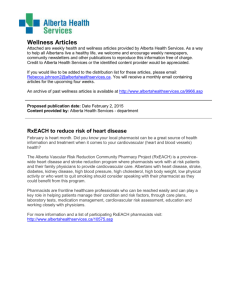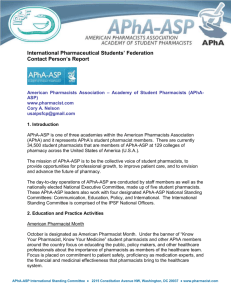1997 APhA-ASP Midyear Regional Meetings
advertisement
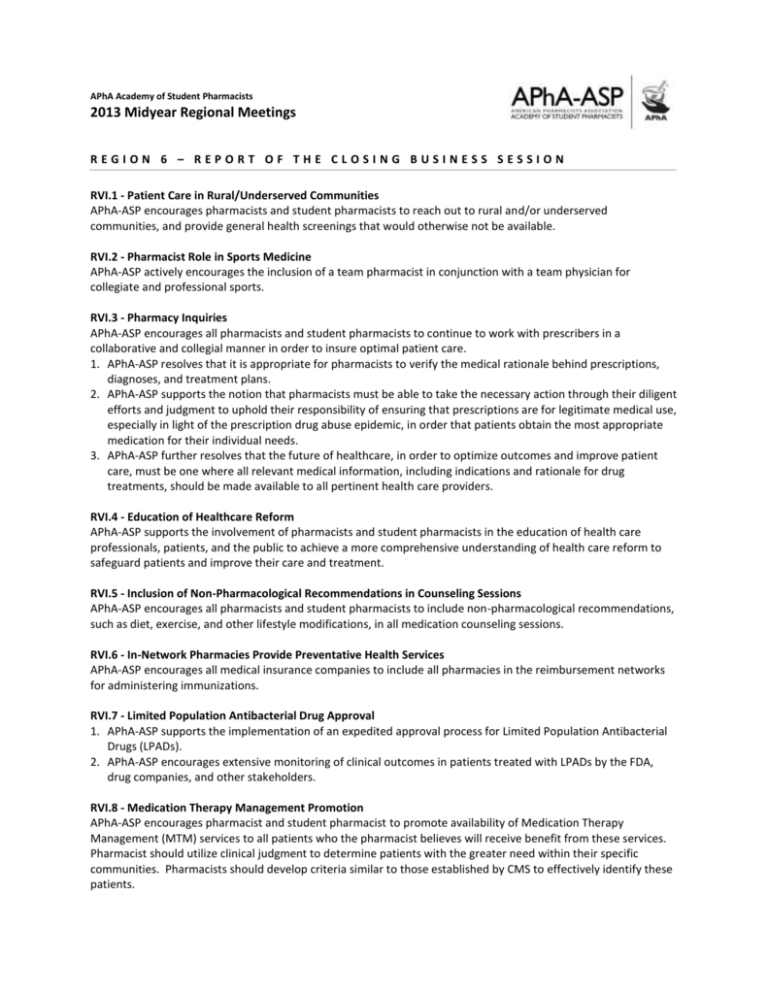
APhA Academy of Student Pharmacists 2013 Midyear Regional Meetings REGION 6 – REPORT OF THE CLOSING BUSINESS SESSION RVI.1 - Patient Care in Rural/Underserved Communities APhA-ASP encourages pharmacists and student pharmacists to reach out to rural and/or underserved communities, and provide general health screenings that would otherwise not be available. RVI.2 - Pharmacist Role in Sports Medicine APhA-ASP actively encourages the inclusion of a team pharmacist in conjunction with a team physician for collegiate and professional sports. RVI.3 - Pharmacy Inquiries APhA-ASP encourages all pharmacists and student pharmacists to continue to work with prescribers in a collaborative and collegial manner in order to insure optimal patient care. 1. APhA-ASP resolves that it is appropriate for pharmacists to verify the medical rationale behind prescriptions, diagnoses, and treatment plans. 2. APhA-ASP supports the notion that pharmacists must be able to take the necessary action through their diligent efforts and judgment to uphold their responsibility of ensuring that prescriptions are for legitimate medical use, especially in light of the prescription drug abuse epidemic, in order that patients obtain the most appropriate medication for their individual needs. 3. APhA-ASP further resolves that the future of healthcare, in order to optimize outcomes and improve patient care, must be one where all relevant medical information, including indications and rationale for drug treatments, should be made available to all pertinent health care providers. RVI.4 - Education of Healthcare Reform APhA-ASP supports the involvement of pharmacists and student pharmacists in the education of health care professionals, patients, and the public to achieve a more comprehensive understanding of health care reform to safeguard patients and improve their care and treatment. RVI.5 - Inclusion of Non-Pharmacological Recommendations in Counseling Sessions APhA-ASP encourages all pharmacists and student pharmacists to include non-pharmacological recommendations, such as diet, exercise, and other lifestyle modifications, in all medication counseling sessions. RVI.6 - In-Network Pharmacies Provide Preventative Health Services APhA-ASP encourages all medical insurance companies to include all pharmacies in the reimbursement networks for administering immunizations. RVI.7 - Limited Population Antibacterial Drug Approval 1. APhA-ASP supports the implementation of an expedited approval process for Limited Population Antibacterial Drugs (LPADs). 2. APhA-ASP encourages extensive monitoring of clinical outcomes in patients treated with LPADs by the FDA, drug companies, and other stakeholders. RVI.8 - Medication Therapy Management Promotion APhA-ASP encourages pharmacist and student pharmacist to promote availability of Medication Therapy Management (MTM) services to all patients who the pharmacist believes will receive benefit from these services. Pharmacist should utilize clinical judgment to determine patients with the greater need within their specific communities. Pharmacists should develop criteria similar to those established by CMS to effectively identify these patients. RVI.9 - Pharmacist Access to Diagnosis Codes on Electronic Prescriptions APhA-ASP supports a position of allowing diagnosis codes to be viewable to pharmacists on every electronic prescription in order to help facilitate efficient patient care. RVI.10 - Proposed Amendment to 2008.2 - Health Literacy (Referred to the APhA-ASP Policy Standing Committee) Current APhA-ASP Adopted Resolution 2008.2 - Health Literacy APhA-ASP encourages pharmacists and student pharmacists to actively incorporate health literacy assessment into the development and implementation of each patient care plan. Proposed Amendment: APhA-ASP encourages pharmacists and student pharmacists to be aware of health literacy issues and actively work to improve their patient's health literacy. This would include assessing health literacy and implementing ways to improve health literacy in incorporate health literacy assessment into the development and implementation of each patient care plan.
